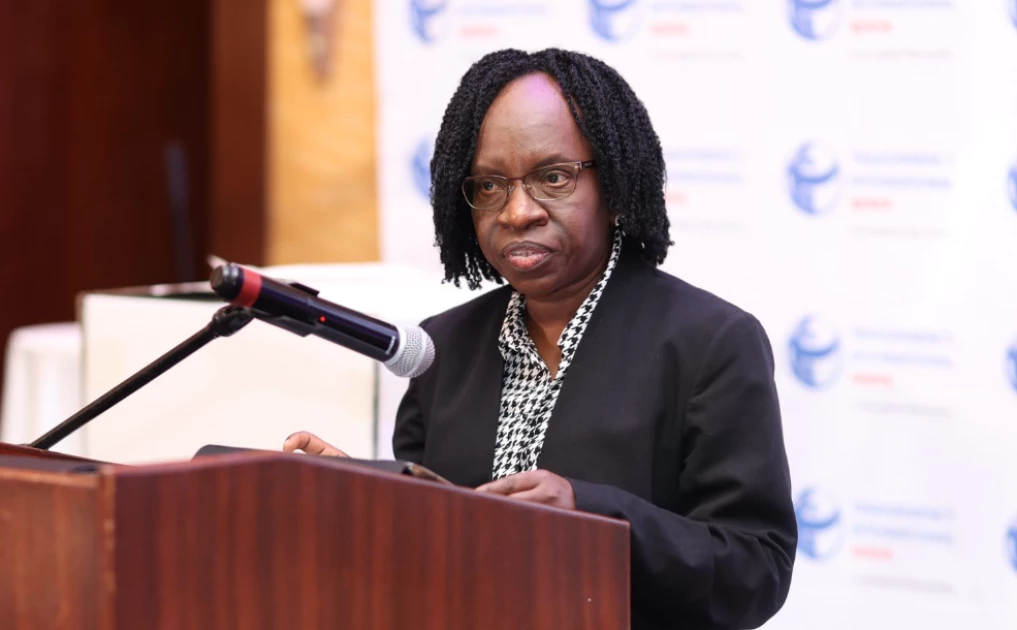Varsity fund in crisis: Audit exposes mismanagement, exclusion

Auditor-General Nancy Gathungu has pointed out deep weaknesses in the model, which she says has led to unfair allocation of resources.
The higher education funding model introduced by the government in 2023 is riddled with flaws that have denied deserving students access to financial aid, a new audit has revealed.
Auditor-General Nancy Gathungu has pointed out deep weaknesses in the model, which she says has led to unfair allocation of resources, including giving money to students who had deferred their studies or failed to report to university.
The report says the system’s failure is largely due to its lack of integration with the Kenya Universities and Colleges Central Placement Services (KUCCPS).
“The model is not integrated with the Kenya Universities Central Placement Service system to ensure seamless tracking of students from placements in the universities, to funding,” the report says.
This disconnect, the Auditor-General notes, has made it difficult to track learners throughout their education. As a result, some students receive funding even before they are officially placed in institutions, while others are locked out due to missing or duplicated registration numbers.
“A review of documents and interviews with the Fund’s management revealed critical challenges the model is facing. For instance; there is no coordination between the other government agencies dealing with the higher education students’ support,” the report adds.
The audit for the financial year ending June 2024 uncovered instances where scholarships were awarded to students who were either expelled or never reported to campus.
The findings have exposed glaring gaps that have caused delays and left many students struggling to access financial support, raising doubts over the model’s fairness and functionality.
“This raises concerns about the system’s ability to fairly allocate funds. As such, the effectiveness of control over scholarship management processes could not be confirmed,” the report says.
The model was rolled out by President William Ruto’s administration and promoted as a student-centred system aimed at addressing inequalities in higher education.
It uses a Means Testing Instrument (MTI) to assess applicants’ financial needs, grouping them into five bands to determine the level of support through scholarships, loans or household contributions.
However, the Auditor-General found that the MTI was not only implemented using inaccurate data, but also suffered from technical problems that affected its effectiveness.
“Review of the means testing instruments (MTIs) used for placing students in bands against approved MTIs revealed variances between the approved MTIs and the system-configured MTIs. In the circumstances, students’ placements resulting from use of the unapproved MTIs were inaccurate,” the report states.
The audit also highlighted the low level of awareness about the funding process, especially among students in marginalised areas. Many were not informed on how to apply for financial assistance, leading to exclusion.
“Vulnerable groups such as students living with disabilities and those from remote areas have faced difficulties accessing funds,” the report notes.
The report further points out that inclusivity concerns remain unresolved, citing the challenges faced by Muslim students who require Sharia-compliant financial products.
Beyond allocation problems, the audit raised the alarm on the long-term survival of the fund, warning that low loan repayment rates are putting its sustainability at risk. According to the report, high unemployment and underemployment among graduates have contributed to growing defaults.
“Loan repayment burden due to high unemployment and underemployment rates are making it difficult for graduates to repay their loans, increasing default rates and threatening the sustainability of the revolving fund,” it reads.
The model has also been the subject of legal battles.
In December 2024, a court declared it unconstitutional, ruling that it was discriminatory and lacked public participation.
